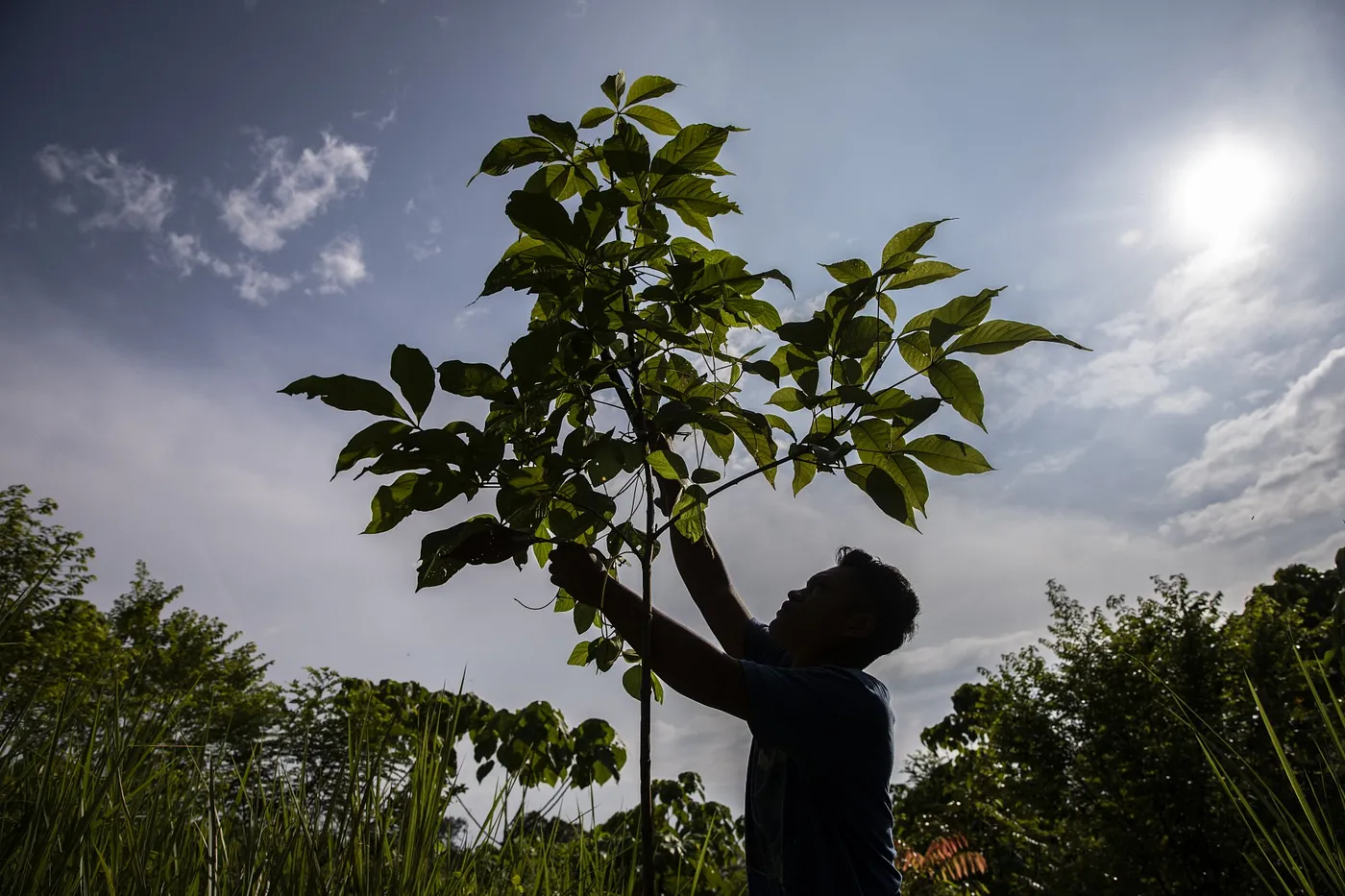Re-Power Small-Scale Farming
In this article we explore how inclusive renewable energy can re-power farmers, their soils and rural economies

By Annelies Withofs (IKEA Foundation)
Back in 2017, upon launching the Low-Energy Inclusive Appliances (LEIA) programme, Efficiency for Access developed its first communications campaign in an effort to promote greater awareness of clean, energy-efficient productive use technologies in the agricultural sector; this campaign was called “Efficiency for AgTech.”
In 2022, as we celebrate the five-year anniversary of LEIA, we return to this title with the aim of reflecting not just on our own growth over the past five years, but that of the energy-ag nexus as a whole. This blog series in the Efficiency for AgTech campaign, entitled Voices in AgTech, highlights the people and organisations whose work has contributed to increased awareness of the role of solar-powered agricultural technologies. In this first blog article of the series, we provide a platform to Efficiency for Access Coalition Donor member, IKEA Foundation.
As I started to work on the IKEA Foundation’s agricultural livelihoods strategy and dug into the available research, I was stunned by the findings and numbers. Over 80% of all farms globally are smaller than two hectares, and together produce around 30% of our food. The vast majority of people in the Global South depend on this type of small-scale farming but cannot secure a decent livelihood for their families. In fact, they often go hungry themselves.
Despite a decades-long global focus on increasing food production, malnutrition and food insecurity are still on the rise. Today, 30% of the world’s population is food insecure, and the numbers are expected to grow further. Small-scale farmers are trapped in a downward spiral, as intensified monocrop farming degrades their soils and their farms’ ecosystems to the point where the only answer is to introduce more artificial fertilisers and pesticides. And as biodiversity is lost and land is degraded, small-scale farmers become increasingly vulnerable to the impacts of climate change, exacerbating food insecurity. Moreover, in response to a production system that damages the resilience of farmers and their farms, and fails to deliver the food that they need, 30% of all food produced is lost or wasted.
All evidence shows that the current linear food and agriculture system is not working for people or the planet. I firmly believe that this system, based on the exploitation of small-scale farmers and limitless extraction of resources, must make way for a circular economy for food that fits within the planetary boundaries. Working as a programme manager at the IKEA Foundation, I have the privilege to support partners that are helping to make the shift to a food and agriculture system that fairly rewards farmers for their work and empowers them to make sustainable production choices. I have the responsibility too, to ensure that the partners and programmes we support, contribute to transforming the agro-food system into one that regenerates soils and protects and restores the environment.

During my many visits to small-scale farmers in Africa and India, I have had the opportunity to learn what a difference renewable energy can make. I have seen how key it is within a circular and regenerative food and agriculture system — from before the farmer starts planting, all the way to post-harvesting handling of crops. Renewable energy can help farmers access IT, be it a simple radio or a smart phone, to help them make informed decisions on what and when to plant, when to harvest and how to best market their products. It can power smart devices that measure soil carbon content and provide information on soil fertility, guiding farmers to the right inputs or practices to use. Renewable energy can improve (drip)-irrigation on the farmer’s fields or ensure a constant flow of ventilation in their greenhouses. It can power cool storage systems to decrease post-harvest food loss, and can help the farmer with appliances for washing, treating and processing crops before they are sold onto the market.
We have to make relevant renewable energy solutions accessible and affordable to the many small-scale farmers because it is crucial to turn around the system and move to a circular economy for food and agriculture. The Efficiency for Access Coalition and its Low-Energy Inclusive Appliances (LEIA) Programme contributes to this by mapping out the different smart solutions that exist and boosting the potential of uptake of renewable appliances. I am convinced that, if made accessible and affordable, this suite of solutions can help reverse the negative spiral, by improving yields, decreasing food loss and driving vibrant local circular economies of small-scale processing businesses.
Inclusive renewable energy can re-power farmers, their soils and rural economies. Let’s invest in it.
***
Annelies Withofs is a Programme Manager at the IKEA Foundation since 2014. Ardently working for her first few years at the Foundation on ‘Reshaping Humanitarian Response’, she now takes that same drive to help shape and implement the Agricultural Livelihoods portfolio strategy. She is particularly inspired by partnerships that will help farmers to transition to regenerative production systems, that will boost a circular economy for food, and ultimately transform the global agri-food system into one that is good for people and planet. Before joining the Foundation, Annelies worked on solar energy, water and sanitation, landscape management as well as small and medium entrepreneurship. She holds a Master’s degree in Cultural Anthropology and Development Sociology, with a specialisation in Environment and Development.